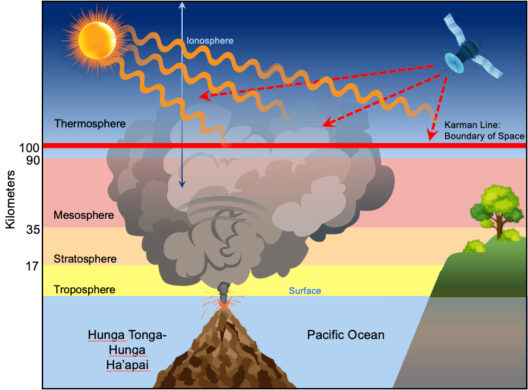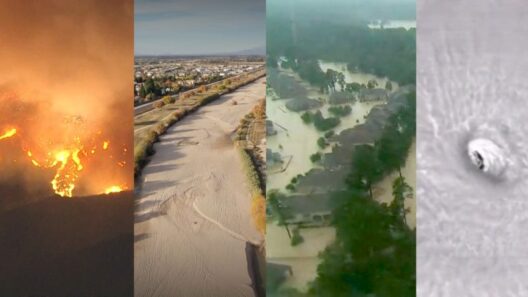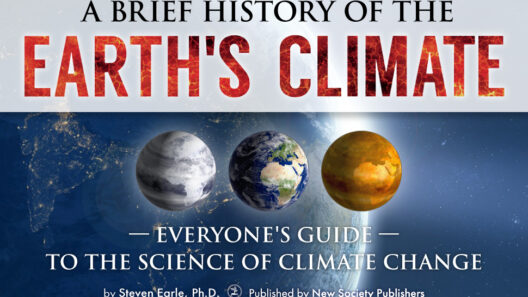In recent years, the apocalyptic narrative surrounding climate change has penetrated public discourse, catalyzing debates that oscillate between alarmism and skepticism. A majority of the scientific community, however, converges on a more nuanced understanding of the climate crisis, characterized not merely by uncertainty but by a substantial consensus regarding its reality, roots, and consequences.
The Intergovernmental Panel on Climate Change (IPCC) reports, which synthesize the work of thousands of scientists, assert that climate change is unequivocally linked to anthropogenic activities. The burning of fossil fuels, deforestation, and industrial processes release greenhouse gases, primarily carbon dioxide and methane, into the atmosphere, leading to a gradual increase in global temperatures. This phenomenon, often referred to as global warming, serves as the catalyst for a host of deleterious environmental impacts.
First and foremost, scientists delineate the myriad implications of climate change on weather patterns. Increased frequency and intensity of extreme weather events such as hurricanes, droughts, and heatwaves are becoming commonplace. Indeed, climatologists have observed a perturbation in traditional climate systems. Studies reveal that regions previously considered temperate are now experiencing unprecedented temperature spikes, broadening the scope of habitats conducive to pests and pathogens, thereby threatening biodiversity and public health alike.
Furthermore, the ramifications of climate change extend beyond atmospheric phenomena; they encompass the vital oceans as well. Marine biologists have warned of the severe repercussions of ocean acidification, a direct consequence of increased carbon emissions being absorbed by ocean waters. This acidification compromises the structural integrity of coral reefs and disrupts marine food chains. The metaphoric canary in the coal mine, coral reefs are pivotal to oceanic ecosystems, serving as nursing grounds for myriad species. The loss of coral communities due to bleaching events reflects a summons for immediate action.
Another pressing concern revolves around rising sea levels, a phenomenon that scientists predicated would occur as glaciers and polar ice caps melt. The Intergovernmental Panel on Climate Change anticipates that by the end of the century, sea levels could rise by over a meter, inundating coastal communities and displacing millions. This reality poses existential threats to low-lying nations and urban areas. Coastal cities are now re-evaluating their infrastructure, investing in retrofitting and resilient designs to mitigate impending vulnerabilities. Knowledge of these dynamics underscores the necessity for adaptable urban planning informed by rigorous scientific research.
Taking into account the multifaceted nature of the climate crisis, scientists advocate a spectrum of solutions, emphasizing that mitigation and adaptation strategies are both essential. Mitigation involves reducing greenhouse gas emissions and enhancing carbon sinks, such as forests and wetlands. Renewable energy technologies—solar, wind, hydro, and geothermal—are pivotal in transitioning from a fossil fuel-based infrastructure to a sustainable energy paradigm. The scientific community endorses aggressive investments in clean technologies as a fundamental mechanism to decouple economic growth from carbon emissions.
On the other hand, adaptation strategies involve preparing for the inevitable impacts of climate change that are already unfolding. Vulnerable regions must devise robust adaptation frameworks that encompass resilient agriculture, water management systems, and comprehensive disaster readiness. Notably, the emphasis is not only on infrastructure but also on incorporating indigenous knowledge systems that have historically demonstrated resilience against climatic variations.
Moreover, interdisciplinary research intersects with socio-political dynamics, highlighting the importance of not only hard science but also behavioral sciences in addressing climate change. Understanding public perception, engagement strategies, and the socio-economic ramifications of climate policy is paramount. Social scientists elucidate that effective communication is instrumental in galvanizing communities and stakeholders. Scientists contend that simply presenting data is insufficient; crafting narratives that resonate on emotional levels is a critical skill in climate advocacy.
Education plays a foundational role in fostering a climate-literate populace. Educational institutions, from primary schools to universities, are tasked with integrating climate science into curricula across disciplines—not just as an isolated subject but as a critical lens through which to analyze sociology, economics, and global policy. It is through this interdisciplinary approach that future leaders can cultivate the requisite competencies to navigate the increasingly interconnected challenges posed by climate change.
The discursive landscape regarding the climate crisis also necessitates an acknowledgment of social justice issues intertwined with environmental degradation. Marginalized communities often bear the brunt of climate impacts, as they frequently lack the resources to adapt. Scientists advocating for climate action also underline the necessity of equitable policies that ensure marginalized voices are amplified in the decision-making processes concerning climate resilience and resource distribution.
In conclusion, what scientists truly think about the current climate crisis encapsulates a complex web of empirical evidence, rigorous research, and an urgent clarion call for collaborative action. The scientific consensus presents a formidable foundation upon which to base public policies and individual decisions. While the outlook may seem daunting, the collective engagement of communities, policymakers, and scientists heralds a path forward, underscoring the potential for transformative change. Ultimately, the actions taken in the unfolding years will not only determine the trajectory of the climate but will also shape the legacy of generations to come.






